- Home
- Michael Connelly
The Rag Page 4
The Rag Read online
Page 4
The so-called treatment proved to be seriously inadequate, and his wife had died several years ago; but instead of leaving federal service, Magee had decided to try to do what he could to help others escape captivity. He had originally been a guard in Baton Rouge, Louisiana, the city where his wife had died that was only sixty miles north of New Orleans. He had been transferred there shortly after his wife’s death. Two other guards had been transferred with him: the very two men who were inside the shelter with Magee and Ray and his crew. Their story was different from Magee’s. They had freely pledged their allegiance to the new government and applied to be prison guards so they could assist in the reeducation of their countrymen to get them to accept the new order and become compliant.
In fact, the two men, Tim Johnson and Jerry Calhoun, were former army intelligence officers who were members of the Louisiana National Guard. Many members of the Guard had gone off the grid with their families and had taken significant amounts of equipment to prepare to fight to take their country back from the usurpers that had stolen it. The job for Johnson and Calhoun was to infiltrate the prison system and find out what techniques were being used to control the prisoners and identify the former military members that they could help to escape and join the fight.
The prison administrators had assigned all the barracks guards to monitor the prisoners carefully to watch for any inmates that were showing signs that they were not taking their medications and were coming out of their zombielike state. Johnson and Calhoun were very good at such detection, and it didn’t take long for them to identify two men who were part of Ray’s team. They were also aware that Ray was not required to take the drugs and that he was conducting clandestine meetings in the barrack’s bathroom.
Of course, all the barracks contained listening devices to record the conversations and activity of the prisoners, and that included any activity in the bathroom. Ray had been sure that this was the case, and it had only taken him a few minutes to find the device in the bathroom hidden behind a toilet. It was easy to cover it with a towel when Ray held his meetings, and when they listened to the recordings, Johnson and Calhoun were aware that something was being done to mask conversations, but they did not report it or try to keep it from happening. This was because Sergeant Magee had informed them of who Ray really was and he suspected that an escape was being planned.
That was what Magee had told Ray when he pulled him aside. He had also told Ray why he had known his true identity, and that was what convinced Ray that Magee and the other two guards were allies. Now he had to convince his worried and skeptical men. He informed him that Sergeant Magee had never directly met him; it turned out that Magee had also been a Green Beret, and he knew of Major Raymond Thibodeaux by reputation, and he and his A team were assigned to an ultrasecret mission in Afghanistan along with the three other A teams in his company. They would all be under command of Major Thibodeaux and were briefed on the mission by him.
That was the only time Magee had seen him, except for briefly as the teams moved in on their objective. The mission had been completed, and Magee never saw Ray again until he was transferred to the center in New Orleans. He knew that Ray had not recognized him because he had just been one of thirty-six Green Berets that had briefly been under his command. Magee had put on considerable weight since then, so Ray did not initially make the connection; but when Magee described in detail the operation that had happened in Afghanistan, Ray knew he was telling the truth. Ray conveyed all this to his men and his belief that the guards could be trusted to join them, but he could tell that the situation had made his crew uneasy, so he gave them a choice.
“I’ve told you what I think, but it is up to you,” said Ray. “Sergeant Magee and his men will let us go without them and take off on their own. Obviously, they can’t stay around and tell their superiors that they were overpowered and we escaped on their watch. They would probably be executed on the spot.”
Sergeant Magee stepped in and told the still-skeptical inmates that that he and his men had something that might help in that decision. They had several duffel bags with them, and they opened up and gave each of the men in Ray’s group a loaded Glock 19 pistol and two extra clips of ammo. This sealed the deal, and Ray prepared his men and their new allies to move out.
However, something more had to happen before they could move. The building they were in had no windows and was normally only used during the day so they would have to open the door to see what was happening outside. It was now dusk, and since the sun was setting, all the security lights would be on. They cautiously cracked open the door to their shelter, and when they did, they saw that the wind had gotten stronger and the rain was getting heavier, but the lights were still on in some of the buildings including the one they occupied and the compound. They would have to wait and pray that these lights would eventually go out.
Then shortly after eight thirty, the light in the building went out; and when they checked outside, they saw that the lights in the detention center were also dark. It would just be a matter of minutes before the backup generators would be started, and while they would not illuminate the area where Ray and his group were located, it was still time to move. While Magee and his men had brought a change of clothing with them, it was decided that they needed to stay initially in their federal uniforms so that in the unlikely event that they did run in to a federal patrol in the storm, Magee could convince the patrol leader that they were escorting the inmates to the river to help secure the boats there.
Chapter VIII
The escape plan was now put in motion, and the group headed out to join up with Jamie in the nearby park. They moved out in the standard military patrol formation. Captain Jackson took the point; he would lead the patrol and be the first one to make contact with Jamie who knew him. He would explain why there would be men in their group who would be wearing federal police uniforms. Once this meeting took place and he had talked to Jamie, he signaled the rest of the patrol to move up. When everyone was together, Jamie said he had reconsidered the original plan and offered an idea that would change the plan to make it better.
The original idea was to steal several vans, load them up with the weapons from the secret cache, and then offload the weapons to the boat and set sail upriver. The vans would be driven into the river so that when the feds realized that there had been an escape they would start looking for the vans. Jamie had seen a flaw in the plan while the fishing boats came and went at will: no fishing boat captain would have taken his boat out to sea when there was a hurricane coming in. Therefore, the feds might quickly determine that the missing boat could have been stolen by the escaped prisoners.
Jamie suggested that after he led the group to the area where the vans were parked, he and two other men proceed immediately to the wharf where the boat was located. They would pick out several other boats moored in the same area and cut them loose so they would drift out into the river. Once loose, the boats would be battered by the current that would try to force the boats downriver and the hurricane winds that would be trying to push them upriver. They would eventually either run aground or possibly sink, but either way, it would deflect suspicion that the prisoners had used a boat for their escape.
Ray now knew for sure that he had made the right choice when he had included Jamie in the group. The young man had a good head on his shoulders, and this proved it. Ray immediately agreed to the plan, and Jamie led the men out of the park toward the French Quarter. The fury of the storm was rapidly increasing, so they would have to move quickly, and that would not be easy since the power was out throughout the city. It was pitch black, but Magee and his men came to the rescue once again. Prior to going on duty watching Ray’s crew, Magee had checked out three pairs of night-vision goggles for the alleged purpose of being able to hunt down any inmate that tried to escape in the storm.
Jamie was given one set, and he would be in the lead accompanied by Captain Jackson who would also ha
ve a set of goggles. Jamie would be looking for the landmarks that would keep him on the right track while Jackson would be looking for any signs of the enemy and danger. The third set was worn by Ray, so he could lead the rest of the men who would all be walking with a hand on the shoulder of the person in front of them. This would hopefully keep someone from getting lost, because if that happened, that person would be on his own and the rest of the team would not have time for a search.
It took more than an hour for the escapees to reach their destination, and the men were all soaked to the bone. However, as expected, they had encountered no federal patrols. The motor pool where the vans were kept was fenced in, but Ray had known about this since Jamie had scouted it out. The gate was heavy and locked with a padlock and chain but was not that high and could easily be scaled by the highly trained men in Ray’s unit. They would then hot-wire three vans after disabling the GPS. They would crash through the gates with the vans, and the noise would be covered by the raging storm.
As they prepared to steal the vans, Jamie and his small group moved out for the wharf. Ray’s men took only a few minutes to secure the vans and proceed to the location where the weapons and ammunition were stored. The building had remained abandoned since it was looted. George Carson led the men to the bookshelves that were hiding the door to the secret room. He had been given the code to the locked room by the now-deceased owner, and he opened the room easily. They had taken several flashlights from the shed they had been hiding in at the detention center, and when they lit up the room, they found it was still filled with all the weapons that George and his comrades had originally placed there.
In addition to the standard assortments of hand guns and semi-automatic rifles, there were also various automatic weapons such as Uzis, AK-47s and M16s. The various gangs in New Orleans had been well armed, particularly the ones connected to Mexican or Colombian drug cartels. Some also had connections to Islamic terrorist organizations; so in addition to firearms and ammunition, there were also several cases of hand grenades, three cases of C-4 explosives, and over three dozen RPGs.
The vans that the crew had stolen had already been loaded with food for the next-day delivery, and they had to be at least partially offloaded so that there would be room for the munitions and the men. They kept as much of the nonperishable food they could because they would need it for their journey through enemy lines. That necessitated leaving some of the weapons behind along with the extra food, but there was no other option available.
Chapter IX
It had only taken Jamie and the other men with him a few minutes to reach the wharf where the boats were tied up. Jamie pointed out to Jason Arnaud the three boats he thought they should choose from. Jason quickly checked each one out by boarding them—inspecting the engines, the radar, and radio equipment—and then checked the hulls and cargo holes. He settled on a one-hundred-feet-long boat with a twenty-two-feet breadth. It was a snapper boat, so it was designed to fish closer to shore for red snapper. It was not particularly fast, but it was sturdy and had a shallow draft so was perfect for navigating the Mississippi River and Louisiana bayous.
Another plus was that it had almost half a tank of fuel. That was unusual since fishing boat captains usually drained their tanks when a storm was coming in so that if the boat was torn loose from its wharf and collided with another boat it would not explode. However, these were not ordinary times, and diesel fuel was scarce. Offloading the fuel into tanks on the dock made it much more vulnerable to theft than keeping it in a locked tank on the boat. Arnaud’s inspection was as complete as it could be with the use of just a small flashlight that he kept shielded. The boat was named the Marie L, probably for the famed voodoo queen Marie Laveau who had once ruled New Orleans through a combination of magic and blackmail. Jason decided to rename the boat Freedom Runner.
In the meantime, Ray and his crew were moving as quickly as possible to get the food unloaded from the vans and then reload them with weapons and ammunition. The process was not helped by the increasingly heavier rain and wind, but they all knew that time would be running out unless they made it to the boat and were headed upriver by midnight at the latest. When the vans finally moved out shortly after nine thirty, it was slow going since they obviously could not travel with their lights on.
However, it would have been much slower if the three drivers had not had the night-vision goggles that Jamie felt were not needed by his team because he knew the route to river well and there was abundant lightning from the storm to show the way. Fortunately, the streets of New Orleans were empty since everyone knew better than to venture out during a powerful hurricane. When the vans finally reached the wharf, Jason directed them to the Freedom Runner, and the process of transferring the food and munitions into the hole of the boat started immediately. On fishing boats, the cargo holes were usually filled with ice; so after the fish were caught, they would stay as fresh as possible during the trip back to New Orleans. It was not a pleasant place to work in, but to these Americans who were preparing to make a run for freedom, it smelled like roses.
As Ray’s crew unloaded the vans, Jamie and Jason were joined the third member of their group, a young man named William “Billy” Jordan, a former soldier in the Louisiana National Guard who had been arrested for allegedly trying to hide guard weapons from the federal police in Lake Charles, Louisiana. He had made his living initially working offshore on oil rigs in the Gulf of Mexico until the progressives decided to shut down the oil companies and replace them with government-run companies.
Jamie, Billy, and Jason had fire axes they had taken from various boats and went to the other two boats that were to be cut loose to confuse the authorities. They carefully chopped through areas of the wharf where the mooring lines were tied, so it would look like the boats had been torn loose by the winds. They didn’t cut them all the way through immediately. The final cuts would be made when the Freedom Runner was ready to sail.
That occurred at eleven nine, ahead of the self-imposed schedule. As Jason fired up the boat’s dual engines, the other men cut loose the two decoy boats and destroyed the wharf around where their own boat was moored. Then they jumped on the Freedom Runner as the boat headed up the river. They had already driven the empty vans into the muddy-churning waters of the river.
The river was choppy and the current was strong, but the wind was still behind them, so they were moving slowly but steadily. This allowed Jason to use the night-vision goggles to watch the river ahead for any signs of sandbars that would often shift location even when there wasn’t a storm stirring the river up. The pilot also had to watch out for any other obstacles in the river, and he couldn’t take a chance on turning on the boat’s running lights or searchlight.
The crew quarters below deck were designed to house six men. There were five small sleeping cubicles for the crew, a somewhat larger cabin for the captain, and a galley where all the food was prepared, the men were fed, and also where the crew held their nightly poker games. With the addition of Magee and his men, there were twelve in Ray’s group; and so even with Jason at the helm, the crew area was crowded. The men did not care about the crowded conditions because this was the first time in hours that the escaped prisoners had been in a dry place.
They found some dry clothes that belonged to the fishing boat’s crew but decided not to change immediately since they were just going to get wet again before this night was over. So everyone was soaked to the bone and cold, but they did find some slickers to wear over their wet clothing. Most of the weapons, ammunition, and food had been stored in the boat’s hole; but each man had kept an automatic rifle and pistol in case they ran into trouble. As the propane stove in the galley started to heat some rations so the men could have a hot meal, several others went topside to assist Jason.
Jamie was one of them, and he volunteered to man the open stern with his weapons and night-vision goggles so he could look for any possible enemy patrol boats that mi
ght come up behind them. Two other men moved on to the enclosed bridge to help Jason watch the river in front and on both sides of the boat. At this point, most of the men were still in the dark as to where the boat was headed. Only Ray and Jason knew, but now that they were on the river, the destination was revealed to all them.
Chapter X
The initial destination was an area outside of Donaldsonville, Louisiana, a city of approximately 7,600 people on the west bank of the Mississippi River in Ascension Parish. It had a mixed population, but many of the people living in the parish were Cajuns. Among them were Ray Thibodeaux’s relatives including his first cousin Daniel Thibodeaux. Ray had been raised in Ascension Parish on a two-thousand-acre plantation that had been in his family for generations. Its primary crop was sugarcane although his family also raised some beef cattle and thoroughbred horses that they raced on the tracks like the one in nearby Lafayette, Louisiana.
Ray had been raised on the plantation with his younger sister, Jennie, who had tragically drowned one hot summer day while swimming with friends in the bayou that ran through the property. She was sixteen years old at the time of her death, and she and Ray had been very close. The whole family was devastated by the loss, and Ray took it particularly hard but knew that his life must go on. He had just graduated from high school and had enrolled at LSU to study agriculture.

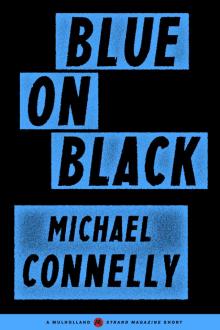 Blue on Black
Blue on Black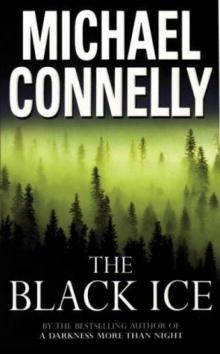 The Black Ice (1993)
The Black Ice (1993) Crime Beat: A Decade of Covering Cops and Killers
Crime Beat: A Decade of Covering Cops and Killers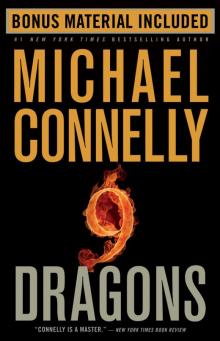 Nine Dragons
Nine Dragons The Late Show
The Late Show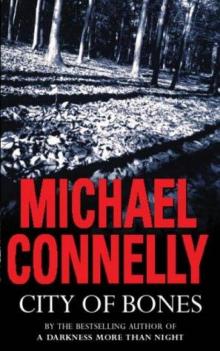 City of Bones
City of Bones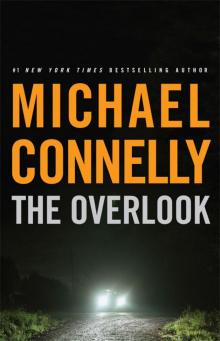 The Overlook
The Overlook The Crossing
The Crossing The Poet (1995)
The Poet (1995) Murder Worthy
Murder Worthy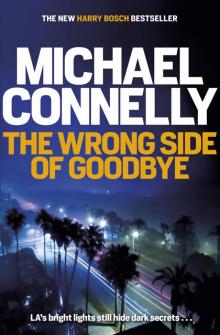 The Wrong Side of Goodbye
The Wrong Side of Goodbye Harry Bosch Novels, The: Volume 2
Harry Bosch Novels, The: Volume 2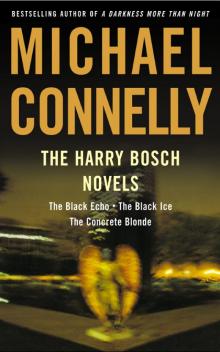 The Harry Bosch Novels
The Harry Bosch Novels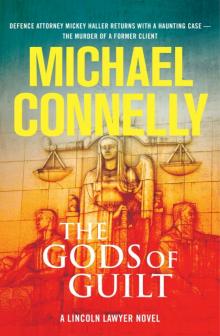 The Gods of Guilt
The Gods of Guilt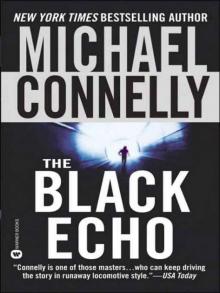 The Black Echo
The Black Echo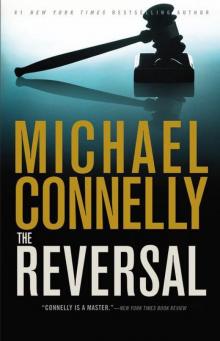 The Reversal
The Reversal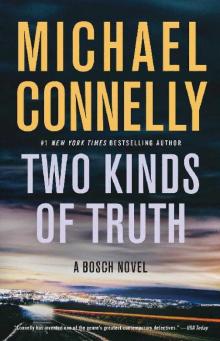 Two Kinds of Truth
Two Kinds of Truth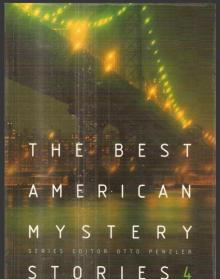 The Best American Mystery Stories 2003
The Best American Mystery Stories 2003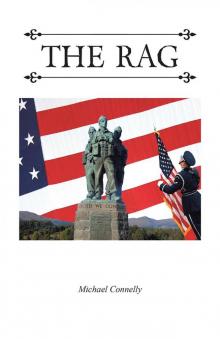 The Rag
The Rag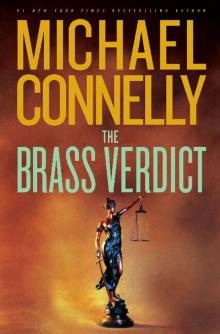 The Brass Verdict
The Brass Verdict The Black Echo (1992)
The Black Echo (1992)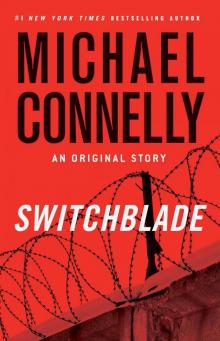 Switchblade
Switchblade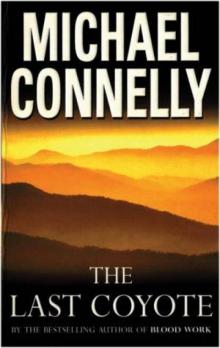 The Last Coyote
The Last Coyote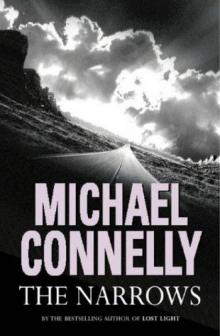 The Narrows
The Narrows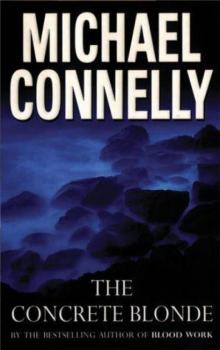 The Concrete Blonde (1994)
The Concrete Blonde (1994)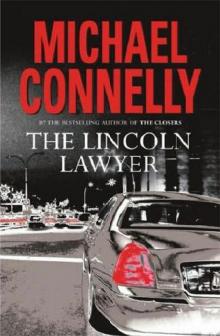 THE LINCOLN LAWYER (2005)
THE LINCOLN LAWYER (2005)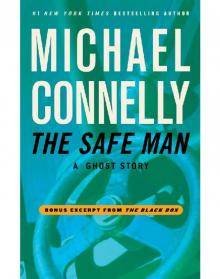 The Safe Man: A Ghost Story
The Safe Man: A Ghost Story Angels Flight (1998)
Angels Flight (1998) Void Moon
Void Moon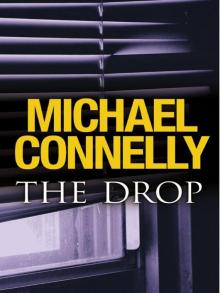 The Drop
The Drop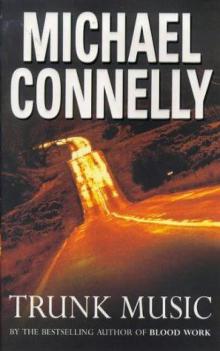 Trunk Music
Trunk Music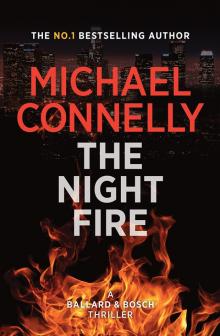 The Night Fire
The Night Fire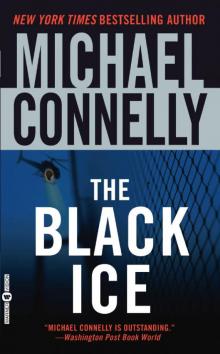 The Black Ice
The Black Ice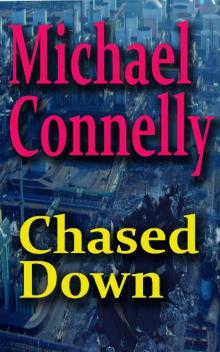 Chased Down
Chased Down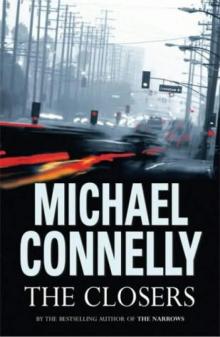 The Closers
The Closers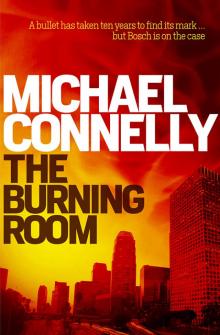 The Burning Room
The Burning Room Angels Flight
Angels Flight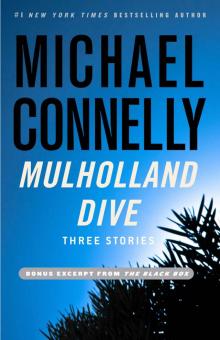 SSC (2012) Mulholland Drive
SSC (2012) Mulholland Drive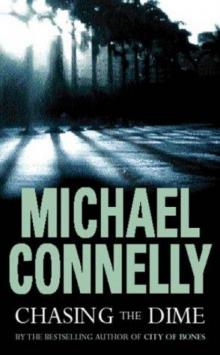 Chasing the Dime
Chasing the Dime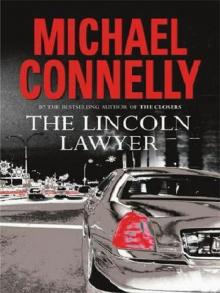 The Lincoln Lawyer
The Lincoln Lawyer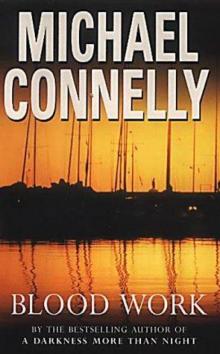 Blood Work (1998)
Blood Work (1998) Echo Park
Echo Park A Darkness More Than Night
A Darkness More Than Night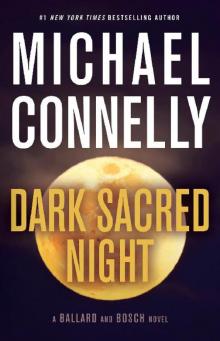 Dark Sacred Night - Ballard and Bosch #1;Renée Ballard #2
Dark Sacred Night - Ballard and Bosch #1;Renée Ballard #2 Lost Light
Lost Light The Scarecrow
The Scarecrow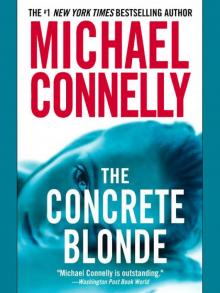 The Concrete Blonde
The Concrete Blonde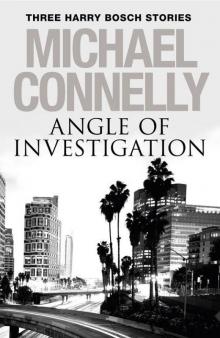 Angle of Investigation
Angle of Investigation Suicide Run: Three Harry Bosch Stories
Suicide Run: Three Harry Bosch Stories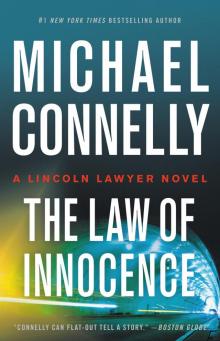 The Law of Innocence
The Law of Innocence Murder in Vegas: New Crime Tales of Gambling and Desperation
Murder in Vegas: New Crime Tales of Gambling and Desperation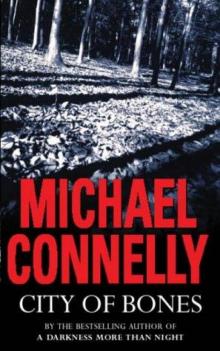 City Of Bones (2002)
City Of Bones (2002)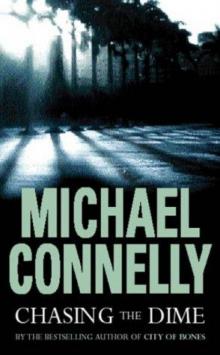 Chasing the Dime (2002)
Chasing the Dime (2002)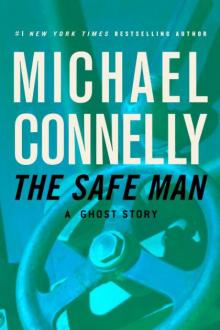 The Safe Man
The Safe Man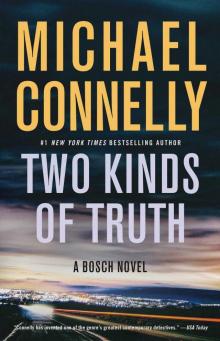 Two Kinds of Truth (A Harry Bosch Novel)
Two Kinds of Truth (A Harry Bosch Novel)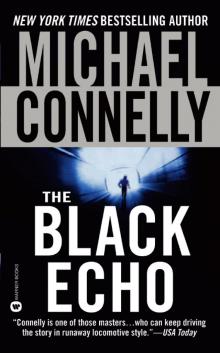 Harry Bosch 01 - The Black Echo
Harry Bosch 01 - The Black Echo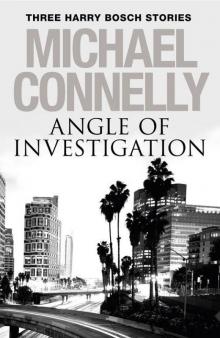 Angle of Investigation: Three Harry Bosch Short Stories
Angle of Investigation: Three Harry Bosch Short Stories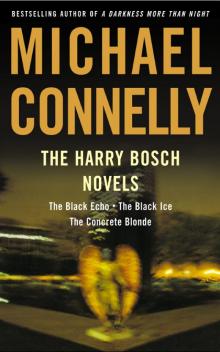 The Harry Bosch Novels Box Set 1
The Harry Bosch Novels Box Set 1 The Concrete Blonde hb-3
The Concrete Blonde hb-3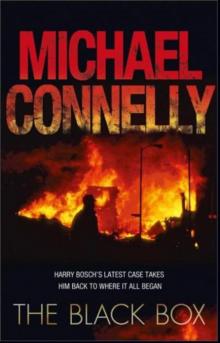 The Black Box hb-18
The Black Box hb-18 Short Stories
Short Stories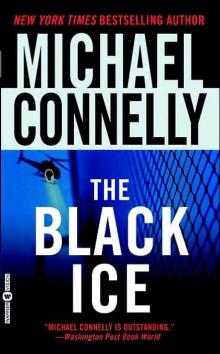 The Black Ice hb-2
The Black Ice hb-2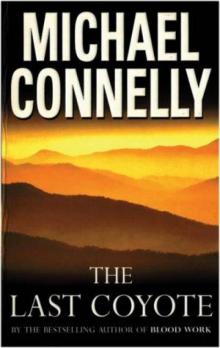 The Last Coyote (1995)
The Last Coyote (1995) The Gods of Guilt mh-5
The Gods of Guilt mh-5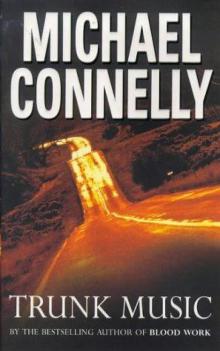 Trunk Music (1996)
Trunk Music (1996)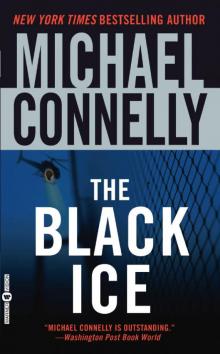 Harry Bosch 02 - The Black Ice
Harry Bosch 02 - The Black Ice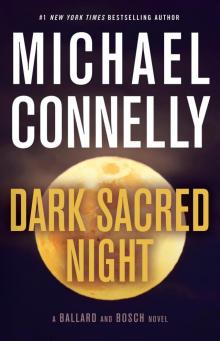 Dark Sacred Night
Dark Sacred Night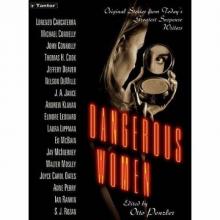 Cielo Azul
Cielo Azul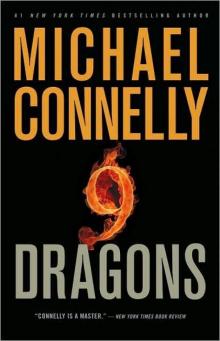 9 Dragons
9 Dragons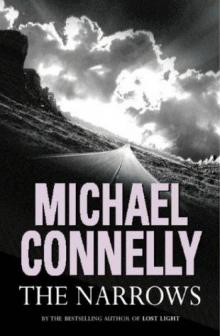 The Narrows (2004)
The Narrows (2004)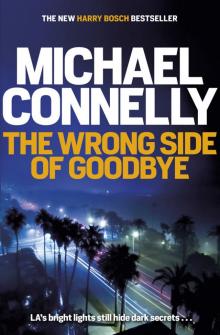 The Wrong Side of Goodbye (Harry Bosch Series)
The Wrong Side of Goodbye (Harry Bosch Series) In The Shadow Of The Master: Classic Tales by Edgar Allan Poe
In The Shadow Of The Master: Classic Tales by Edgar Allan Poe Void Moon (1999)
Void Moon (1999)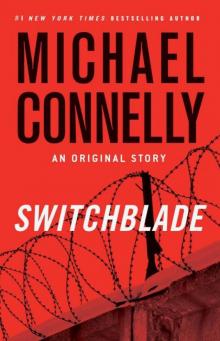 Switchblade: An Original Story (harry bosch)
Switchblade: An Original Story (harry bosch) The Harry Bosch Novels, Volume 2
The Harry Bosch Novels, Volume 2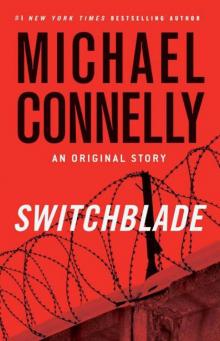 Switchblade: An Original Story
Switchblade: An Original Story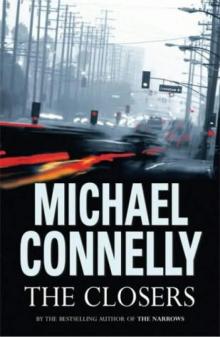 The Closers (2005)
The Closers (2005) Crime Beat
Crime Beat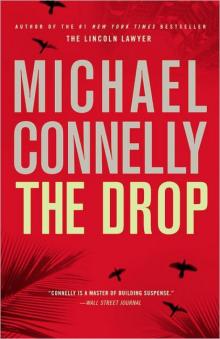 The Drop hb-17
The Drop hb-17 The Gods of Guilt (Mickey Haller 5)
The Gods of Guilt (Mickey Haller 5)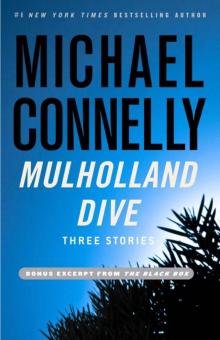 Mulholland Dive: Three Stories
Mulholland Dive: Three Stories Lost Light (2003)
Lost Light (2003)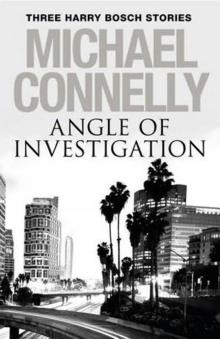 Angle of Investigation: Three Harry Bosch Stories
Angle of Investigation: Three Harry Bosch Stories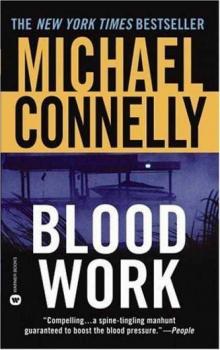 Blood Work
Blood Work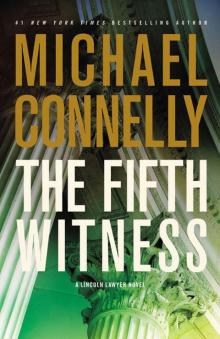 The Fifth Witness: A Novel
The Fifth Witness: A Novel A Darkness More Than Night (2000)
A Darkness More Than Night (2000)